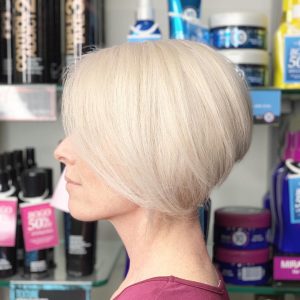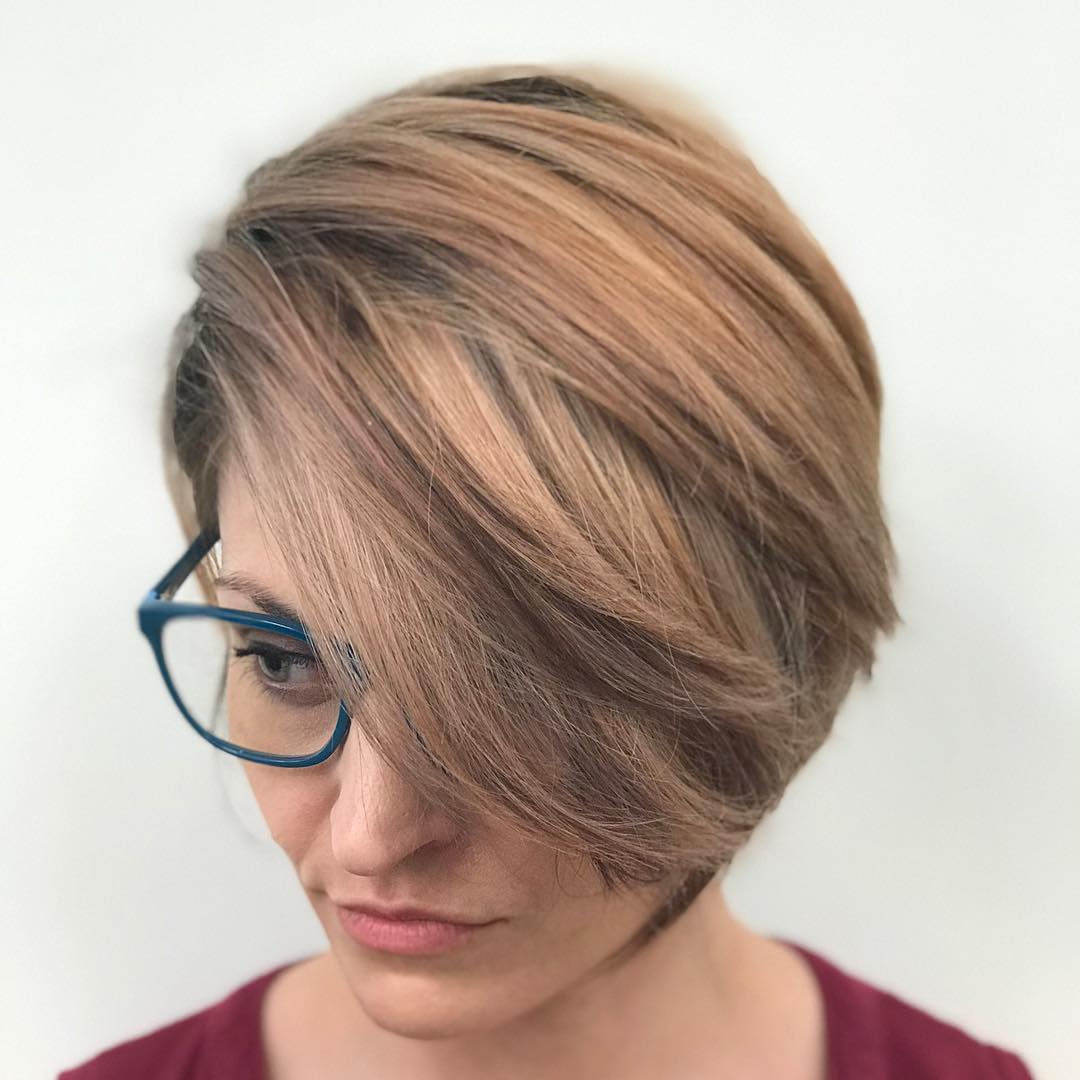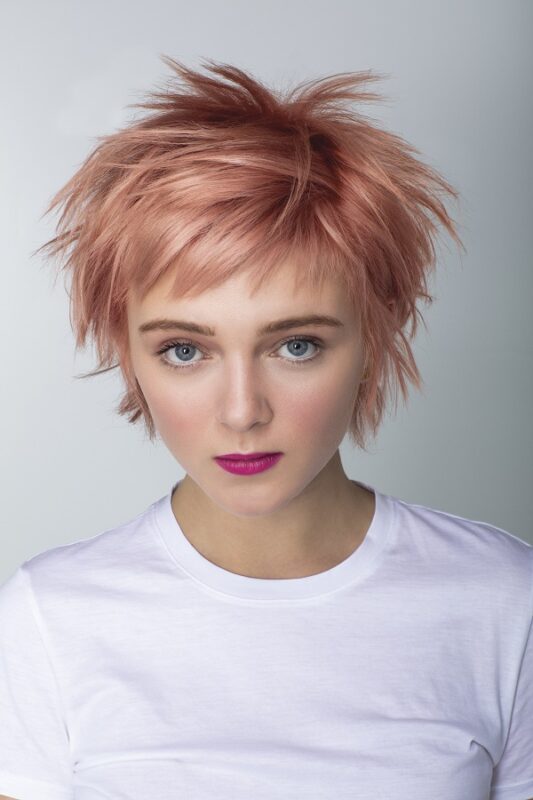Whether you’re a man or woman, you might be dealing with hair that adds some frustration to your life. A common complaint we hear in the salons is, “My hair is just so thin… my ends are straggly.” Having thin hair could be what you were born with or a later-in-life development due to age or medical conditions. Either way, it’s likely out of your control. Embrace what you have and try different styles and products to enhance it.
Is Your Hair Thin, Fine or Both?
One thing to understand before talking styles is whether your hair is thin or fine. Sometimes these words are used interchangeably, but the truth is, they are two different things. Thin hair speaks of the density, or quantity, of hair you have, while fine refers to the texture. There are three categories for density: thin, medium and thick; and there are three for texture, meaning the diameter of each strand: fine, medium and course. Your hair could be any combination of these, like coarse and thin, just as it could be fine and thin. If your hair is fine (what people often call “thin”) but thick (you have lots of it), you will likely prefer different styling options than someone who has thin hair of any texture. Once you have established the density and texture of your hair, choosing a style will be easier. (If you’re not sure, your Hair Cuttery stylist can help!)
Cuts to Consider for Thin Hair
Ok, so you’ve determined you do indeed have thin hair. Here are some different cuts that tend to enhance and flatter thinner hair: The shorter you keep your cut, the thicker it will look. Trying a pixie will give your hair more volume and add a fuller appearance. The longer the hair is, the more it can appear weighed down and flat. A short style allows your hair to lift from the root and not be pulled flat by the weight of your hair (especially with the addition of a little product worked in with a round brush).
The graduated bob will always be a timeless option. This style will fall around chin length and provides more density at the ends. Adding layers provides this density, and you’ll still be able to achieve some height at the root area without it being weighed down. A little longer than the bob, and quite popular, is the lob. Again, keeping as much weight as possible around the perimeter will keep your hair looking the thickest. If this length weighs your hair down more than you’d like because of its length, incorporate a very light layer. This layer will not take too much away from your ends but will allow some extra height at your root.


Styling Thin Hair
Styling products and tools along with a great cut are really important. You do need to be mindful not to use too much product, though. The more product you add to your hair, the more it can be weighed down. The same goes with conditioner—don’t use too much if you use any at all. If you do condition, don’t put it near your scalp—keep it mid-length, or lower, to your ends and, if possible, try not to use it each wash. With that said, a nice volumizing root spray like Cibu High Top and thickening lotion such as Cibu High Density Volumizing Cream might be the perfect combination of products to give you the right amount of lift and fullness. Talk with your Hair Cuttery stylist about what products would work best with your hair texture and cut.
After you add your products, how you blow dry your hair is important. To gain lift at the root and make your hair appear fuller, you want to dry your hair in the opposite direction it grows. If your hair is medium to long length, flip your head and rough-dry it upside down, then flip over and finish with a round brush, working the root area up (toward the ceiling) or forward (toward the mirror). If you pull your brush downward (toward the floor) when drying, there won’t be lift because that’s where the hair is used to falling—it’s all about counteracting! If your hair is short, you’ll still want to dry it with the round brush in an upward motion to add volume, then, when dry, use a styling paste or gel to give a finished look.
Whether your hair is long or short, another trick is to switch your part around. Your hair “learns” where to fall when you part it in a particular spot day after day. If you typically part on the right, switch it to the left for a few days, then switch back. This change of direction will lift the hair at the root because it has not been trained to lay that way. Don’t give it a chance to learn, and switch the part again to gain volume!
Thin Hair Goals
Go short! Go blunt! Add volume! Try short, then grow it out and try longer or vice versa. At your next appointment, talk to your Hair Cuttery stylist about which option will work best with your hair density and texture. They’ll also be able to recommend products to make you look like you have thick, salon-styled hair every day!



